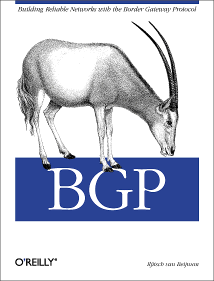
|

|

|
|
Home ·
BGP Expert Test ·
What is BGP? ·
BGP Vendors ·
Links ·
Archives ·
Books ·
My New BGP Book | ||
 (advertisement)
(advertisement)
| ||
|
Path MTU Discovery problems (posted 2003-05-19)
If your network has a link with an MTU that's smaller than 1500 bytes in the middle, you're in trouble. It's not the first time this came up on the NANOG list and it won't be the last. In order to avoid wasting resources by either sending packets that are smaller than the maximum supported by the network or sending packets that are so large they must be fragmented, hosts implement Path MTU Discovery (PMTUD). By assuming a large packet size and simply transmitting them with the don't fragment (DF) bit set (in IPv4, in IPv6 DF is implied) and listening for ICMP messages that say the packet is too big, hosts can quickly determine the lowest Maximum Transmission Unit (MTU) that's in effect on a certain link. Most of the time, that is. In RFC 1191 it is suggested that hosts quickly react to a changing path MTU. So implementors decided to simply set the DF bit on ALL packets. At the same time, many people are very suspicious of ICMP packets since they can be used in denial of service attacks or to uncover information about a network. So to be on the safe side a significant number of people filters all ICMP messages. Or routers are configured in such a way that the ICMP packet too big messages aren't generated or can't make it back to the source host. NAT really doesn't help in this regard either. So what happens when all packets have DF set and there are no ICMP packet too big messages? Right: nothing. Since the first few packets in a session are typically small session get set up without problems but as soon as the data transfer starts the session times out. So what can we do?
RFC 2923 TCP Problems with Path MTU Discovery
|
